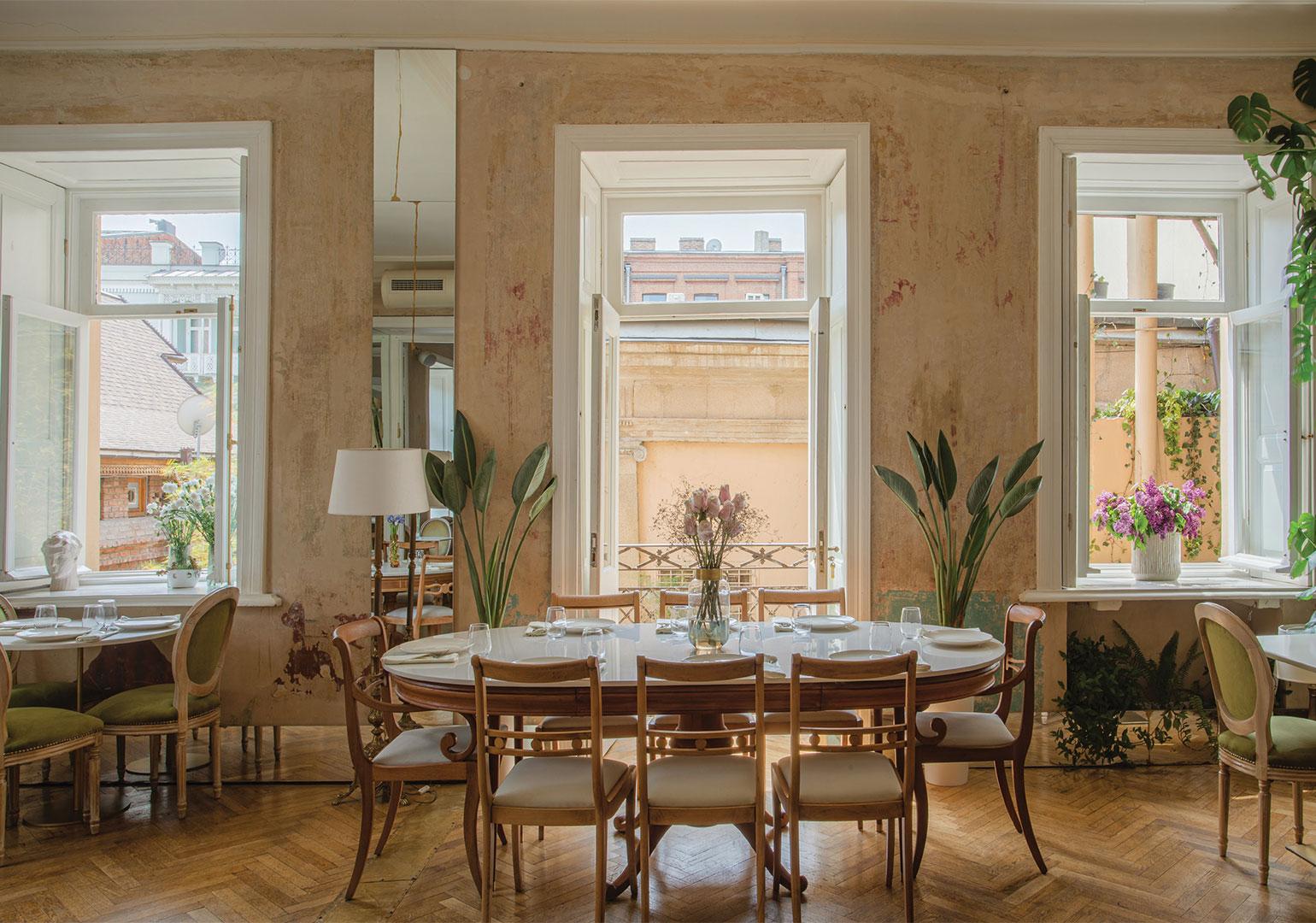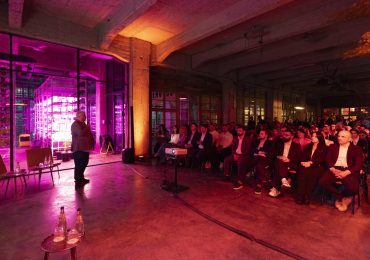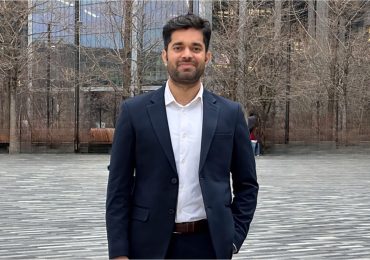Four friends opened the boutique hotel Unfound Door on 111 Agmashenebeli Avenue in historic Tbilisi. This project is more than a business – it restored a cultural monument to its original form and breathed new life into it. The history of the building is an integral part of Unfound Door’s DNA.
Unfound Door, opened by friends Nikoloz Mamardashvili, Nikoloz Pirtskhalashvili, Lasha Lemonjava and Merab Mirziashvili, is located in a 19th-century building that carries the status of a cultural monument. Maintaining the historical significance and appearance of the building while adapting it to a modern hotel and restaurant and finding a special place for it in the Georgian hospitality sector meant additional responsibility for the owners.
While looking for a suitable location for their hotel, the founders discovered that behind the Soviet-era green paint on the building that now houses Unfound Door, there were early 20th-century murals reflecting the history of that period. Together with the help of City Hall, the local council and the Tbilisi Development Fund, they restored the damaged cultural monument .
The cultural and historical character of the building helped define the mission of Unfound Door – to implement a new standard in the local hospitality sector and act as a guide for guests who seek to discover the city and the country. It was particularly challenging to create a harmony between the past and present in Unfound Door’s hotel and restaurant space.
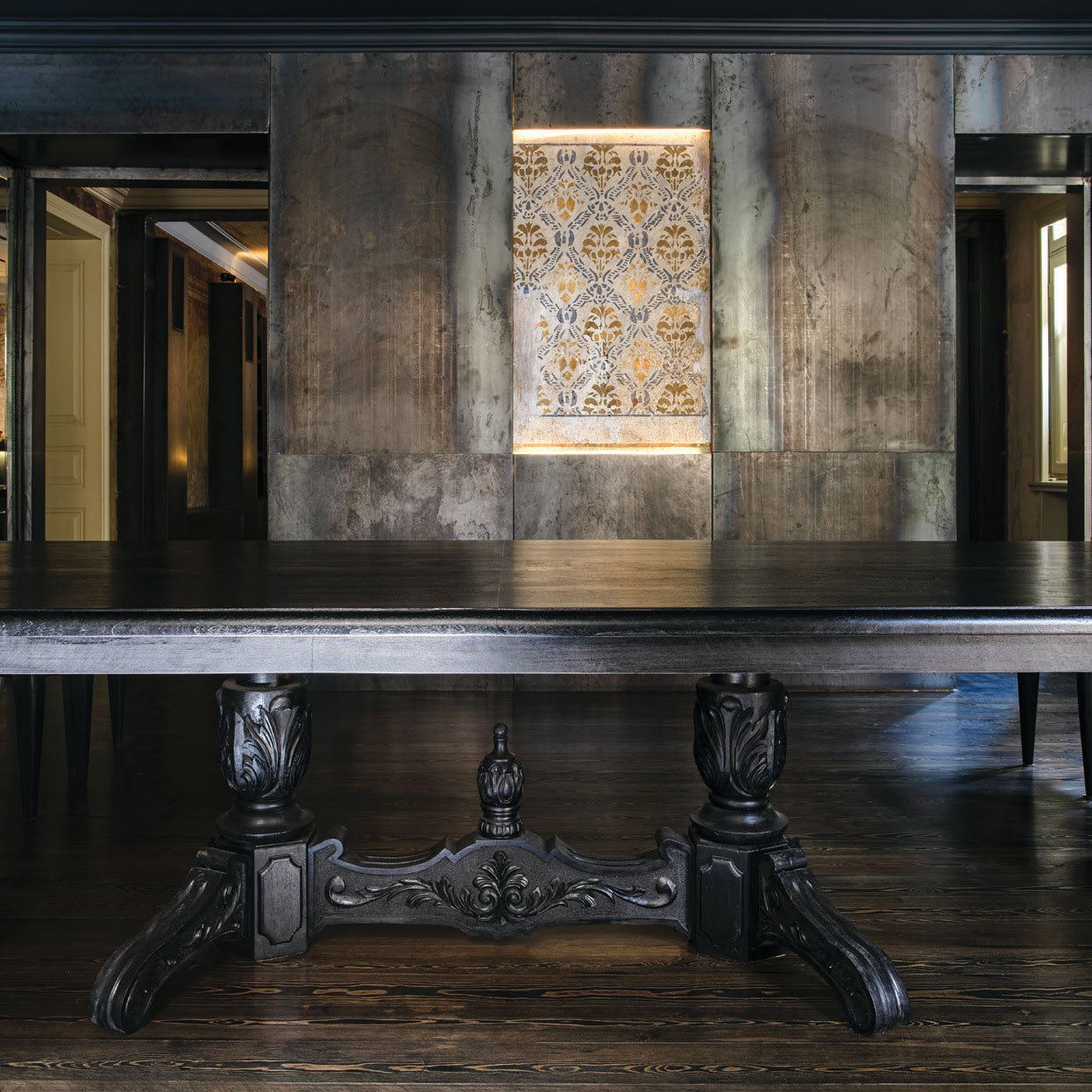
The building’s old brick walls, its entrance hall in the European architectural style of 20th century Tbilisi, the frescoes painted in pseudo-baroque style, the glazed ceiling lights, as well as other design elements characteristic of that era, were all preserved as much as possible. At the same time, the founders used modern design approaches and vintage colors and lighting. Unfound Door was born out of a synthesis of the past and the present.
Although the hotel’s opening coincided with the start of the pandemic, Unfound Door soon attracted attention due to its unique design and operated at 70% capacity during COVID-19. Interestingly, Unfound Door began receiving guests as the restoration works were still ongoing, meaning that guests were afforded the unique experience of witnessing the process of bringing the history of the building back to life.
The unique experience for hotel guests continued upon completion of the renovation works due to the different designs and contents of each of the 15 rooms. For example, seven hotel rooms depict motifs of the seven days of the creation of the universe according to the Bible. The room names have been assigned as day and night, ocean and sky, land and flora, birds and aquatic life, humans and animals, and the seventh as the room of rest.
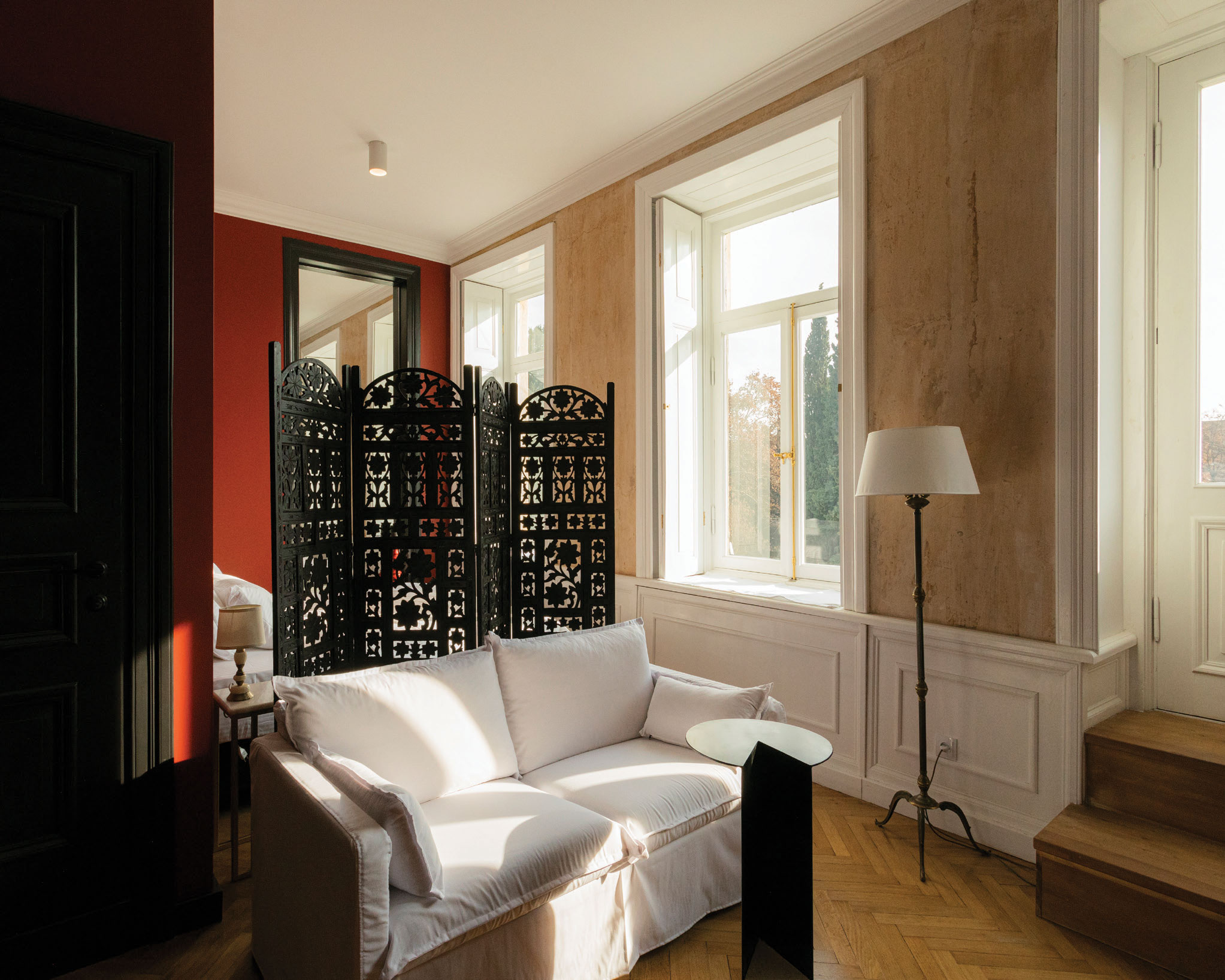
The hotel also has a so-called chill-out room with old brick walls, modern lighting and a mirrored ceiling. This space is used as a breakfast room in the morning and a relaxation room in the evening.
To help guests learn about the country’s history and culture, each room in Unfound Door contains a catalogue of Georgian painters, a guidebook of local galleries and museums, clips of traditional and modern Georgian dances, a pocketbook that tells stories of Tbilisi and world-renowned social figures, as well as other interesting material.
Located on the ground floor of the historic building is the Unfound Door Gastro Bar – a bridge between the past and the present and one of the most valuable spaces in the hotel. It offers a fusion of Georgian and European cuisines, prepared by brand chef Gregory Samgin, an apprentice of the world-renowned chef Aram Mnatsakanov of Michelin star fame.
Gregory Samgin created the Unfound Door menu six months ago. He uses French cooking techniques to prepare dishes inspired by Georgian traditions. The restaurant’s Georgian-European cuisine echoes the history and concept of the building.
To maintain authenticity in every detail of Unfound Door, the ingredients used in the restaurant are sourced locally from different regions of Georgia. This applies not only to food ingredients but also to wine, chacha and other drinks, as well as to the gastro bar’s signature cocktails, whose diverse flavors are also fused with the history and concept of the building.
Today’s bars and restaurants are unimaginable without modern equipment, so it was no less challenging to equip the kitchen and bar of Unfound Door without breaking the connection with the history of the building, especially since all dishes and cocktails in the gastro bar are prepared onsite. Emphasis was therefore placed on the cabinets and appliances’ simple vintage style and color, blending an authentic 19th-century setting with a modern kitchen and bar concept.
Along with the unique design, Unfound Door’s hospitality differs from what is typically found in small boutique hotels. The founders aimed to establish a direct, friendly relationship with customers, which is manifested by providing them with helpful advice at the hotel and acting as their guide in getting to know the city and the country.

Unfound Door was created for customers who prefer a uniquely designed high-end hotel over a big brand. It attracts people interested in local history, culture, art and food while also favoring a modern entertainment style. “Modernity” and an “appreciation of the past” are among the brand’s central values, manifested in keeping up with the times while preserving the original appearance of the cultural monument and giving it a new lease of life.
Behind the doors of many buildings in Old Tbilisi is a story similar to the one at 111 Agmashenebeli Avenue. Through their own experience, the co-founders of Unfound Door want to encourage others to preserve and revive the past using buildings of cultural value as much as possible, as this will add more value and uniqueness to their business rather than working against it. At the same time, they continue searching for interesting buildings, once again planning to form a bridge between the past and the future. We may, therefore, soon find Unfound Door at another address in Tbilisi or in a historical part of another city in Georgia.
